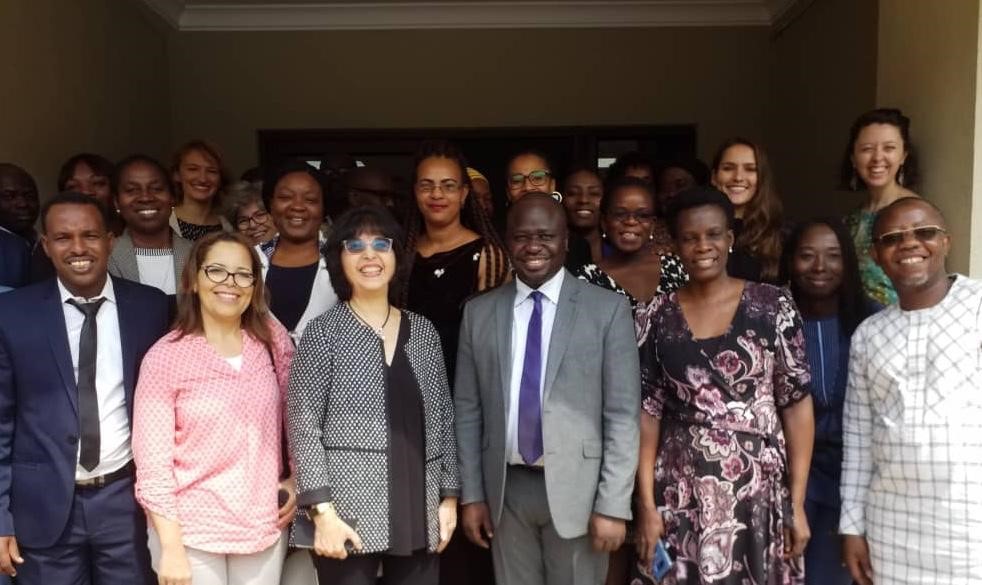Over the last year, Data2X has been working closely with the African Centre for Statistics at the United Nations Economic Commission for Africa (ECA), with support from Open Data Watch (ODW), to launch the Africa Gender Data Network (AGDN), a regional network of gender data practitioners.
In November this year, the first in-person meeting with representatives from 15 African countries took place in Accra, Ghana. Hosted by Ghana Statistical Service and combined with other regional meetings with partners including the African Development Bank, UN Women, and PARIS21, we were delighted to be part of a wide-ranging conversation.
From discussing the intricacies of survey question wording for specific gender indicators to tackling regional funding gaps for gender statistics, the level of energy and commitment in the room was truly inspiring!

The AGDN exists to harness this energy by bringing together representatives from national statistical offices responsible for the production of gender data. The network has three main goals:
Connect the network members to the wider global family of organizations focused on gender data to build strong feedback loops and collaborative relationships.
Closing gender data gaps requires work on many levels. Given the significant expansion in the number of organizations active in the gender data space, ensuring that AGDN members benefit from this increased momentum and that their work is featured as part of the global conversation is a top priority.
Strengthen capacity to elevate gender statistics internally within national statistical offices and government structures.
We know that every commitment made to more and better gender data in global agreements, regional frameworks, and national plans, eventually falls on national statistical offices to fulfill, and particularly on the gender data focal points. Meeting the demand for multiple disaggregations will take ingenuity and creativity. It also requires strong gender data mechanisms inside governments that can effectively advocate for their activities and secure the resources to fulfil their goals. Strengthening this capacity will ensure that members have the skills they need to advocate within their own structures.
Focus on common gender data gaps and accelerate the uptake of new methodologies to close them.
Finally, while we know there are technical hurdles to overcome, the international and research community have been mobilized in recent years to focus on innovative solutions. Shortening the time lag between international methodological advancements and practice on the ground is a key step in closing gender data gaps.
To ensure that the AGDN had a strong technical foundation to build upon, Data2X and ODW launched Bridging the Gap: Mapping Gender Data Availability in Africa in early 2019. This report examined the gender data ecosystem of each of the 15 countries chosen as initial network members. Our aim was to paint a picture of the current gender data availability and quality in each of the countries, identify cross-country trends, and begin to uncover solutions.
We found common areas of challenge and success. For example, most countries do not produce sex-disaggregated environmental indicators but perform well in producing key health and education indicators. But we also found variance across countries, signaling that there is much that countries can learn from each other in closing their particular gender data gaps.
Individual country profiles for each of the AGDN member countries highlighting challenges and opportunities can be found here and are already proving useful to guide investments in gender data among development partners, as well as drawing attention to how the gender data gap is hampering achievement of wider development frameworks in the region.
Next year there will be a series of webinars on specific methodological topics for members; a growth of resources available on the African Statistical Knowledge Network; continued identification of opportunities for coordination and cross-country learning; and another in-person gathering of members.
The AGDN is a young initiative and it will take the cooperation of formal and informal partners to see its potential come to fruition. We are excited to explore new collaborations in 2020 and beyond.
